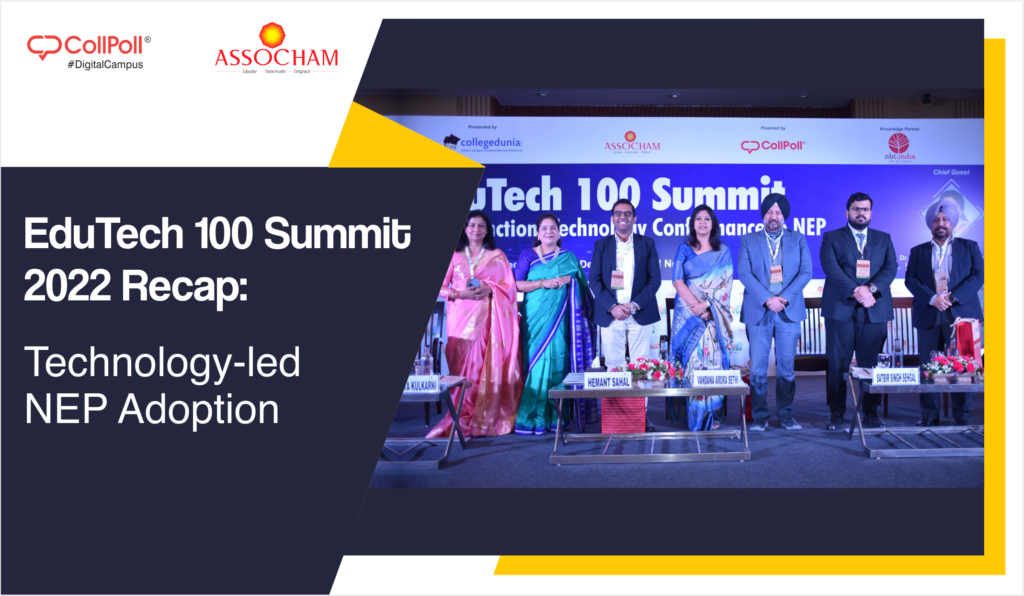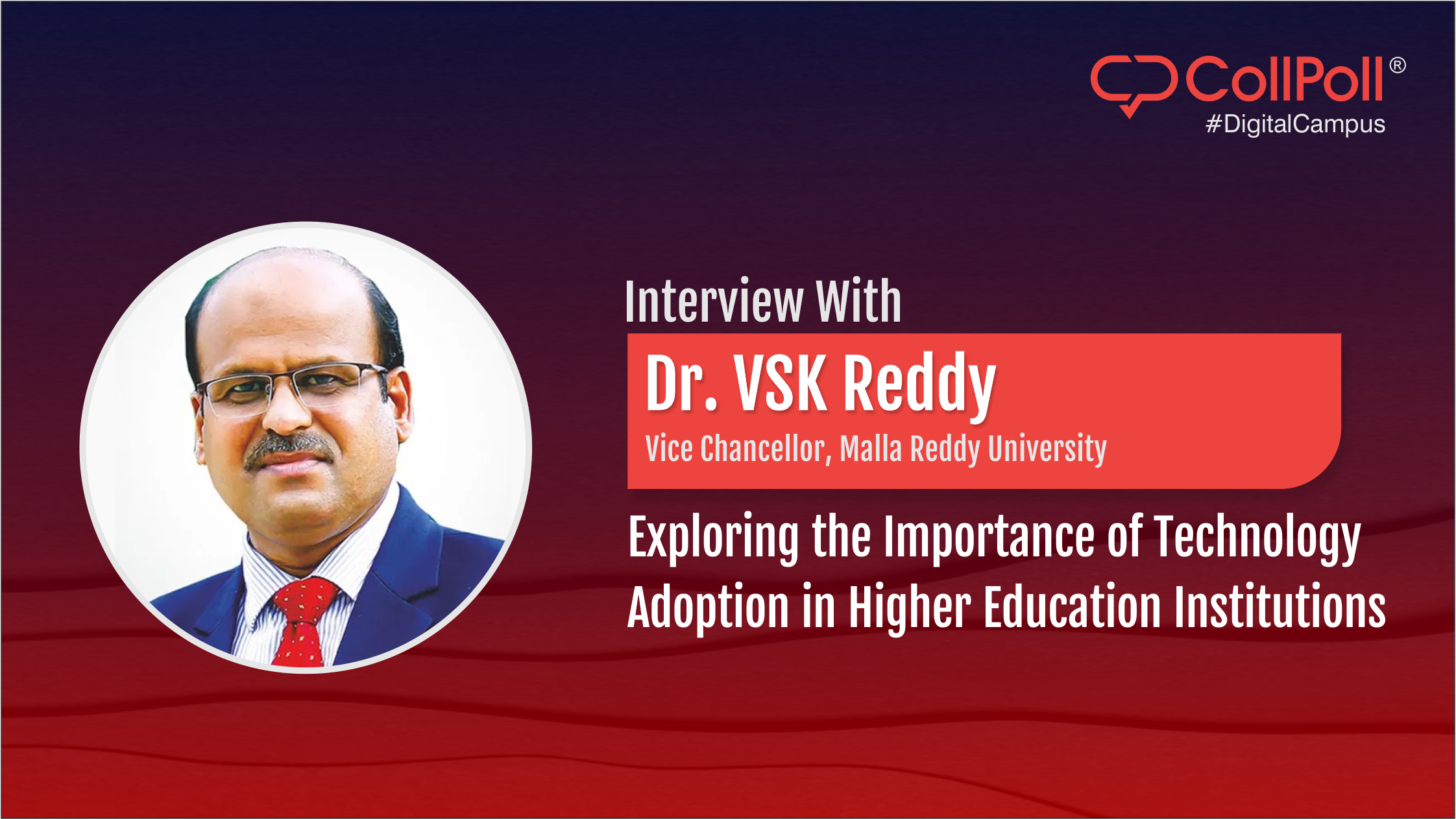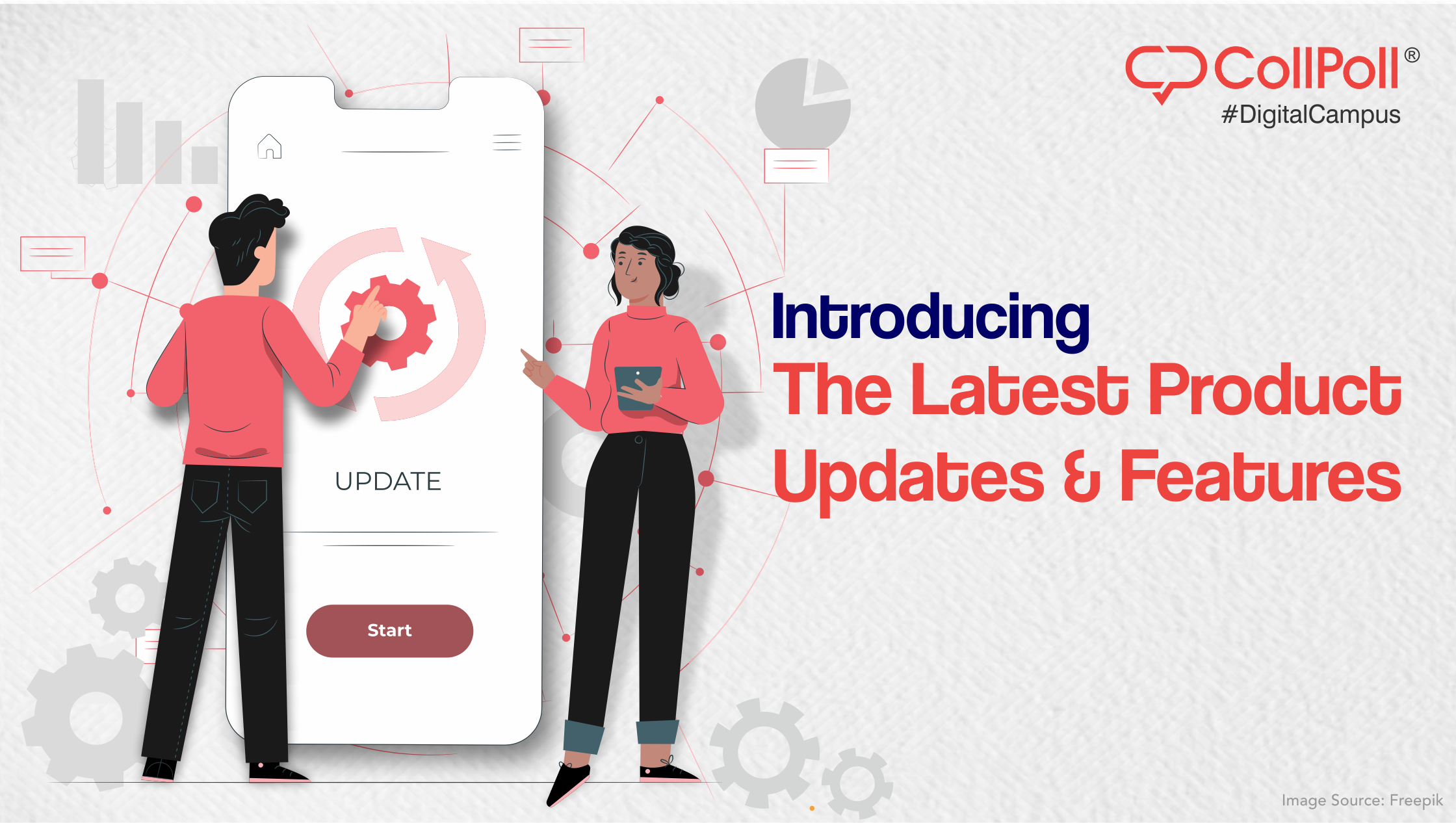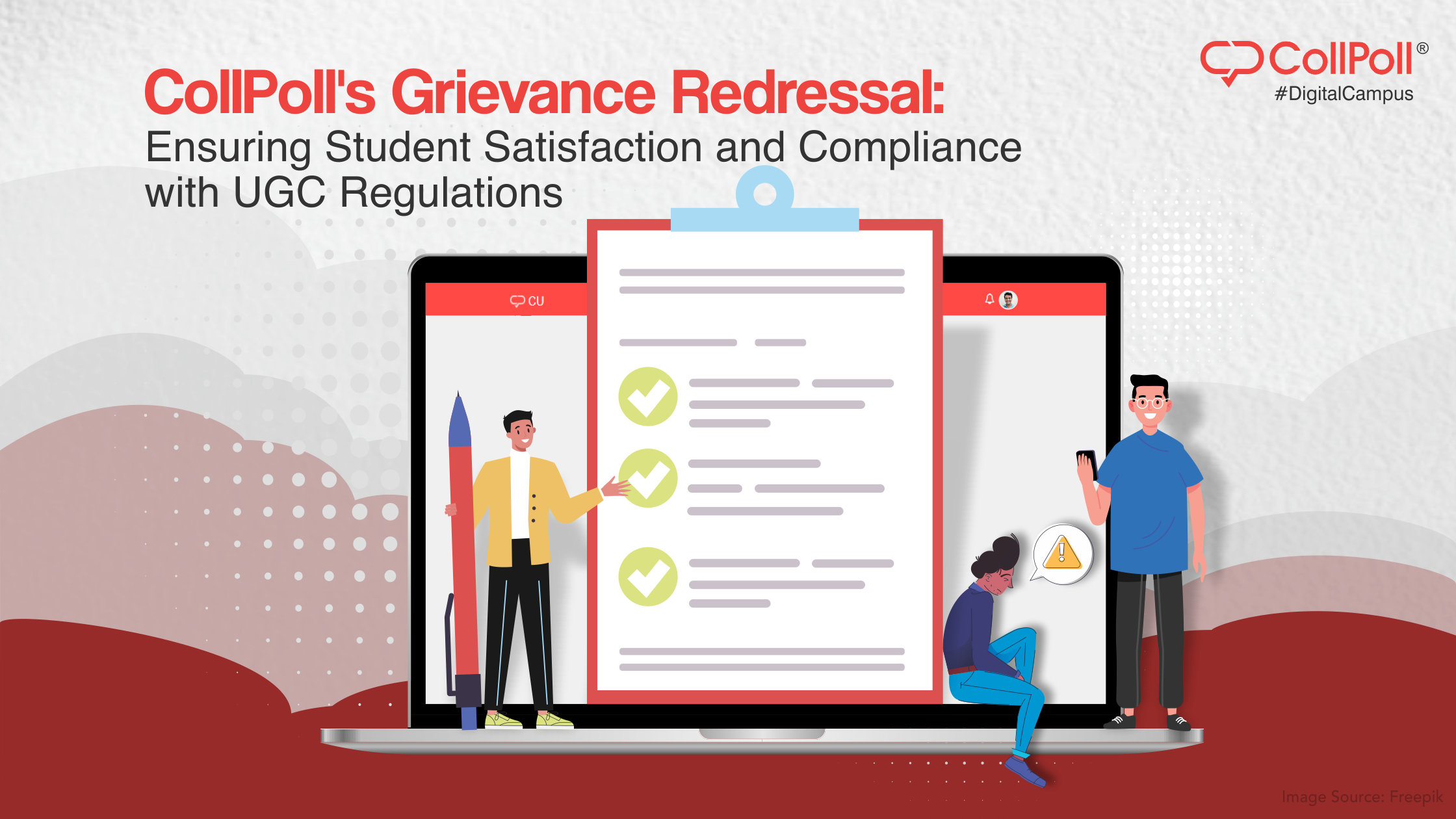The Indian education system has become more technology-driven in recent years due to India’s evolution into an information-intensive society. Today, technology can help us overcome educational challenges by creating more open sources for enhanced learning experiences. And according to the New Education Policy (NEP 2020), a core principle of the education system will be its extensive use of technology in teaching and learning, the removal of language barriers, and the increase of access as well as education planning and management.
The New Education Policy (NEP 2020) has transformed the way institutions offer higher education, bringing major changes at multiple levels.
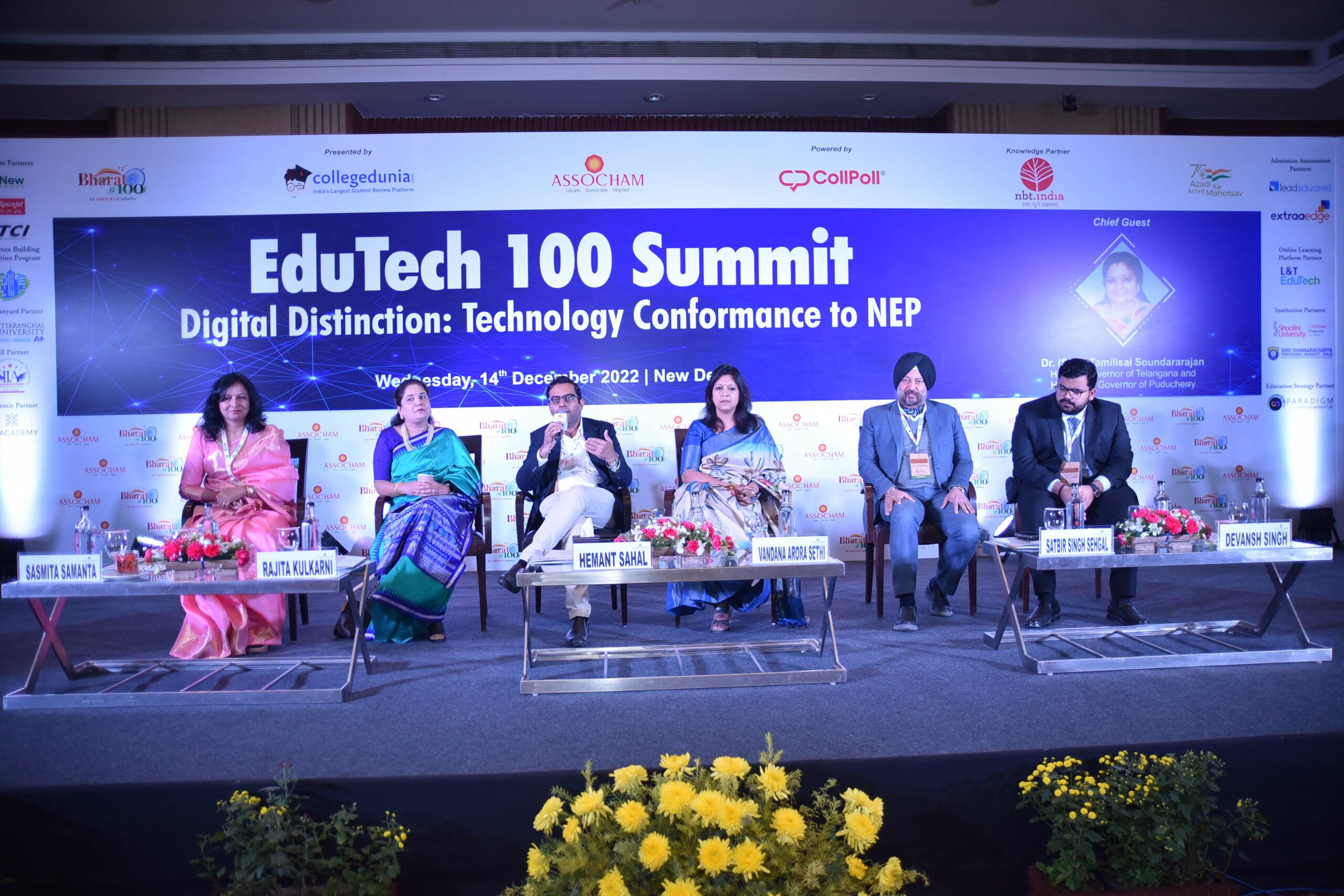
The second-panel discussion of the EduTech 100 Summit 2022 on ‘Digital Distinction – Technology Conformance to NEP’ organised by ASSOCHAM and powered by CollPoll, focused on – Technology-led NEP Adoption – and was moderated by Hemant Sahal, Founder & CEO of CollPoll. Dr. Rajita Kulkarni, President of Sri Sri University, Prof. (Dr.) Sasmita Samanta, Vice Chancellor of KIIT University, Dr. Satbir Singh Sehgal, Vice President of Uttaranchal University, Prof. (Dr.) Vandana Arora Sethi, Chief Strategy Officer & Head of Growth, Lloyd Group of Institutions, and Er. Devansh Singh, CEO of IES University shared their valuable insights on the topic of the session in the presence of eminent leaders and academicians from the higher education sector and the tech world.
Key Takeaways From the Session!
Prof. (Dr.) Sasmita Samanta, Vice Chancellor of KIIT University
- The National Education Policy endorses that through technological intervention, the aspiration that our nation holds for education with respect to – inclusivity, accessibility, and excellency – can easily be achieved.
- Today, only 25% to 30% of young people are able to receive higher education and this percentage could certainly be boosted with technology adoption. Thus, accelerating the growth of the nation.
- NEP 2020 creates a mandate for technological intervention and offers a lot of flexibility in the internationalisation of education.
- It is through technology that we are able to offer real-life industry problems on campus that helps students to learn and develop skills for the future.
Dr. Rajita Kulkarni, President of Sri Sri University
- Research says that the average attention span of an adult is about 9 seconds. So, institutions should focus on teaching in such a manner that students remember whatever they are taught in class. And this can be ensured through the inclusion of technology.
- Technology should act as an enabler in institutions:
- Simplifying one’s life.
- Making a person feel better about themselves by gaining knowledge and skills.
- Making an individual holistically healthy.
- McKinsey reports suggest that about 70% of managers look forward to hiring individuals for their skills than for qualifications. Thus, the education students receive from higher education institutions should also be skill-oriented and adopting technology is a great way to ensure this.
Prof. (Dr.) Vandana Arora Sethi, Chief Strategy Officer & Head of Growth, Lloyd Group of Institutions
- Three things necessary for NEP-led technology adoption are:
- Skills
- Techniques
- Tools
- We need to bridge the digital divide and introduce technology-led platforms to the students of rural areas and sub-urban to arise consciousness in students.
- The EdTech platforms will play an important role in automating the institutional processes and boosting student and educators’ learning and overall growth.

Dr. Satbir Singh Sehgal, Vice President of Uttaranchal University
- The effective implementation of technology in higher education institutions plays the most crucial role.
- Without the right scientific tools and proper use of technology, institutions cannot deliver entry-exit degree options, outcome-based education systems, and flexibility in learning methods.
- It is through technology and digital knowledge that we can deliver better education and encourage NEP adoption.
- The low-cost technology platforms could be helpful in boosting education delivery to all.
Er. Devansh Singh, CEO of IES University
- Promotion of NEP-led technology adoption requires us to:
- Set up digital libraries to deliver content in all languages and at all times.
- Set up virtual labs to help teachers learn new things such as conducting online classes and related processes.
- Providing rural areas with technology-based tools and effective communication for attaining education efficiently is quite imperative.
- The main aim of NEP 2020 is to make a self-reliant India that has achieved a 100% literacy rate.
- Adoption/implementation of learning games and applications is also necessary to enhance learning outcomes.
- Due to technology, students anywhere in the world can learn from online lectures and then decide on their field of interest.
- A perfect synergy is required between higher education institutions and industries. It is hence essential to align industry needs with institutions’ curricula.
The session focused on the importance of technology for adopting the New Education Policy (NEP 2020) for higher education institutions and promoting students’ skill development for the future.
We are thankful to all the eminent speakers and the entire Assocham team to organize such a fruitful and insightful discussion. Our collective efforts can promote a culture of learning and skilful growth for students and all the stakeholders!
Follow us on LinkedIn for more stories & updates: CollPoll

